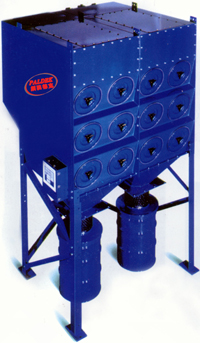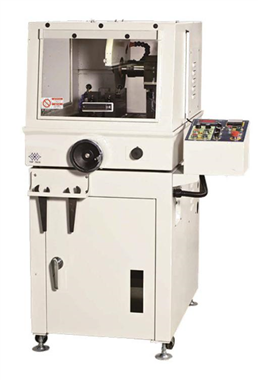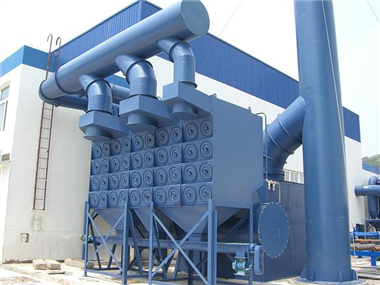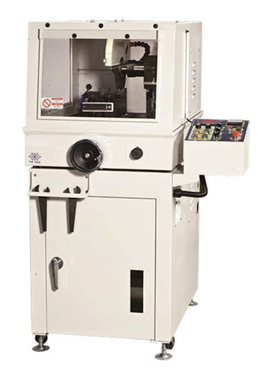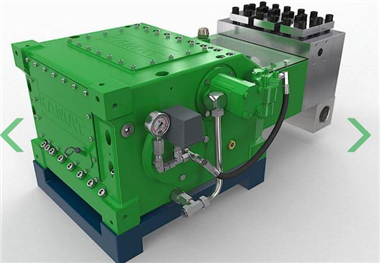News centres
Home > News centresJiangsu Province Volatile Organic Compound Pollution Prevention and Control Measures
Jiangsu Province Volatile Organic Compound Pollution Prevention and Control Measures
Article 1 In order to promote the construction of ecological civilization, prevent and control volatile organic pollutants, improve air quality and living environment, and protect public health, according to the Environmental Protection Law of the People's Republic of China, the Law of the People's Republic of China on Air Pollution Prevention and Control, and the Prevention and Control of Air Pollution in Jiangsu Province These Regulations are formulated in accordance with the laws and regulations such as the Regulations and the actual conditions of the province.
Article 2 These Measures shall apply to the prevention and control of volatile organic pollutants in the administrative areas of this Province and their supervision and management activities.
Volatile organic matter as used in these Measures refers to organic compounds that are emitted from the production, operation and service activities of industrial production, organic chemical storage and transportation, construction, dyeing, motor vehicle maintenance, pesticide spraying, etc., and participate in atmospheric photochemical reactions. Or determine and calculate the determined organic compound according to the prescribed method.
Article 3 The prevention and control of volatile organic pollutants shall adhere to the principles of source control, comprehensive management, damage responsibility, and public participation, focusing on the prevention and control of volatile organic compounds emitted by industrial sources, and strengthening the prevention and control of volatile organic pollutants such as living sources and agricultural sources.
Article 4 The local people's governments at or above the county level shall be responsible for the overall control of the prevention and control of volatile organic pollutants in their administrative areas, strictly control and plan to reduce the total amount of volatile organic compounds, increase the capital investment in the prevention and control of volatile organic pollutants, and coordinate in a timely manner. Solve major problems in the prevention and control of volatile organic pollutants in this administrative region.
Article 5 The competent department of environmental protection shall implement unified supervision and management of the prevention and control of volatile organic pollutants, strengthen air quality monitoring, and issue information on the state of environmental air quality.
The competent departments of development and reform (energy), economy and informatization shall promote the prevention and control of industrial volatile organic pollutants in accordance with their respective duties.
The competent departments of housing urban and rural construction, transportation (ports), agriculture, forestry, etc. and maritime administrative agencies shall, in accordance with their respective responsibilities, promote the prevention and control of volatile organic pollutants and carry out relevant supervision and management.
Article 6 The departments designated by the local people's governments at or above the county level shall be responsible for promoting the prevention and control of volatile organic pollutants in the dyeing and motor vehicle maintenance industries, and carry out relevant supervision and management work in accordance with their respective duties.
Article 7 The departments that have the responsibility for supervision and management of the prevention and control of volatile organic pollutants shall take effective measures to strengthen supervision and management, and regularly announce the prevention, control and supervision of volatile organic pollutants to the public.
Article 8 Local people's governments at all levels and relevant departments shall organize the publicity and education on knowledge of prevention and control of volatile organic pollutants, relevant laws and policies, and advocate the consumption and use of products with low volatile organic content.
Article 9 All sectors of the society are encouraged to participate in and supervise the prevention and control of volatile organic pollutants in an orderly manner. Relevant industry associations should strengthen industry self-discipline and supervision, and actively participate in relevant standards development, technology research and governance, and carry out consultation, evaluation and technology promotion activities.
Article 10 The production, import, sale and use of volatile organic compounds and raw materials containing volatile organic compounds shall comply with the corresponding limit standards.
Article 11 The provincial environmental protection department shall regularly announce to the public a list of key volatile organic compounds. Local people's governments at or above the county level shall take targeted measures to reduce the production, use and emissions of key volatile organic compounds.
Article 12 The provincial competent department of environmental protection shall, in conjunction with the provincial quality and technical supervision department, organize the formulation of emission standards for volatile organic compounds in key local industries, and report them to the provincial people's government for approval.
Article 13 New construction, reconstruction or expansion of construction projects for the emission of volatile organic compounds shall be carried out in accordance with the law. The insufficient part of the new total emission index of volatile organic compounds can be obtained through emissions trading in accordance with relevant regulations.
If the environmental impact assessment document of the construction project has not been reviewed after review or review, the construction unit shall not start construction.
Article 14 The environmental protection authorities may suspend the examination and approval of the environment for the construction of new volatile organic compounds in the region in areas where the total emission control of volatile organic compounds exceeds the national or provincial atmospheric environmental quality improvement targets. Impact evaluation documents.
Article 15 The producers and operators of volatile organic compounds shall fulfill their obligation to prevent and control volatile organic compounds. According to relevant national and provincial standards and prevention and control technical guidelines, adopt volatile organic pollutant pollution control technologies, standardize operational procedures, and organize production management. Ensure that volatile organic compounds are emitted in accordance with appropriate emission standards.
Article 16 The discharge of volatile organic compounds shall be carried out in accordance with the requirements specified in the discharge permit within the time limit specified in the management list for the discharge permit classification; it is prohibited to discharge without a certificate or to discharge pollutants according to the certificate.
The discharge permit issuing authority shall reasonably determine the emission types, concentrations and emissions of volatile organic compounds according to the VOC emission standards, total control indicators, environmental impact assessment documents and relevant approval requirements.
Article 17 Volatile organic matter discharge units shall, in accordance with relevant regulations and monitoring regulations, or entrust relevant monitoring agencies to monitor the volatile organic compounds emitted by them, record and preserve the monitoring data, and disclose them to the public in accordance with regulations.
The monitoring data should be true and reliable, and the storage time should not be less than 3 years.
Article 18 Key units of volatile organic matter emission shall install automatic monitoring equipment for volatile organic compounds in accordance with relevant regulations and monitoring standards, and network with the monitoring system of the competent department of environmental protection to ensure their normal operation and data transmission, and truthfully disclose to the public in accordance with regulations. Relevant data and information, subject to social supervision.
The list of key units for volatile organic emissions is regularly published by the competent department of environmental protection.
Article 19 The competent department of environmental protection shall be equipped with equipment and personnel for the monitoring of volatile organic compounds, supervise and inspect the discharge and treatment of volatile organic compounds, and regularly publish to the public a list of units exceeding the standards for the discharge of volatile organic compounds.
Where the emission of volatile organic compounds does not meet the requirements of relevant standards and technical specifications, the competent department of environmental protection shall order it to rectify within a time limit.
Article 20 When the provincial environmental protection department organizes the environmental credit evaluation and credit management of enterprises within the administrative area of ??the province, it shall incorporate the volatile organic matter discharge status into the enterprise environmental credit evaluation index system.
Article 21 Production and operation activities for the production of volatile organic compounds shall be carried out in confined spaces or in closed equipment. Production sites and production equipment shall design, install and effectively operate volatile organic matter recovery or purification facilities in accordance with environmental protection and safe production requirements; exhaust gas generated from solid waste, wastewater and waste gas treatment systems shall be collected and treated; materials containing volatile organic compounds Storage, transportation, loading and unloading should be closed, and exposure and open air should be prohibited.
Production and management activities that cannot be carried out in confined spaces should take effective measures to reduce emissions of volatile organic compounds.
Article 22 Oil storage and gas storage, refueling and gas filling stations, crude oil product oil terminals, crude oil product oil transportation vessels, tank trucks, gas tank vehicles, etc., shall be installed and used normally in accordance with relevant national and provincial regulations.
Article 23 Gas stations and oil storage depots shall conduct oil and gas emission tests in accordance with relevant state regulations, and disclose oil and gas emission test reports to the public.
Article 24 Where financial funds are used for procurement, environmental labeling products and products with low volatile organic content should be preferentially purchased. Public buildings invested by the government should use low volatile organic content coatings.
Article 25 Products with high volatile organic content are prohibited in environmentally sensitive areas such as hospitals, schools and child care institutions.
Article 26 Dyeing and dyeing operators shall, in accordance with the requirements, eliminate the dry cleaning equipment listed in the phase-out catalogue and use closed-type dry cleaning equipment.
Dry cleaning agents and dyeing agents should be stored in a sealed manner. Waste residue and waste solvent residues should be sealed and stored and recycled.
Article 27 Motor vehicle maintenance and repair operators shall use paints that meet the relevant volatile organic matter content limit standards.
Spraying and drying operations shall be carried out in a closed workshop equipped with exhaust gas treatment or collection devices; open-air spraying and drying operations are prohibited.
Article 28 The competent departments of agriculture and forestry shall promote the promotion and application of non-organic solvent-based pesticides and other products to reduce the emission of volatile organic compounds.
Article 29 If the exhaust gas containing volatile organic compounds is leaked or escaped during production, operation and service activities, affecting the living conditions of surrounding residents, causing environmental pollution, or measuring the emission of volatile organic compounds exceeding the limit by the instrument, the environment shall be The competent department of protection or other departments that exercise supervision and management according to law shall be punished according to law.
Article 30 These Measures shall come into force on May 1, 2018.
- Last article:We will participate in the Frankfurt Tra...
- Next article:Pre-finishing and finishing mill pipelin...
Recommendation information
- We will participate in the Frankfurt Trade Show from April 23 to April 26.
- Jiangsu Province Volatile Organic Compound Pollution Prevention and Control Measures
- Pre-finishing and finishing mill pipeline flushing acceptance site of a high-speed wire rod factory
- Vacuum oil filter is qualified in a certain power plant
- High-speed finishing mill lubrication system diagnostic requirements
- 2014 China International Gas Turbine Equipment and Technology Exhibition
Recommended products
-

Sales of various metallurgical electromechanical equipment and accessories
Such as: gear pumps, high-strength bolts, bearings, etc.
-

Introduced many sets of foreign advanced filter manufacturing lines
Extend the service life of equipment and liquid gas for the benefit of users
-

Filtration product application technology research laboratory
Provide professional level technical services to users instantly
-

Main products and application areas
Oil filter trolleys, etc., mainly used in: iron making in steel systems

Sweep code and pay attention to public numbers
客服工作時間(9:00~18:00)
0086-512-58730300
CopyRight © 2021 paldek.com All Rights Reserved.
網(wǎng)站ICP備案號:蘇ICP備2022045454號-

 This site supports multi-terminal browsing
This site supports multi-terminal browsing

